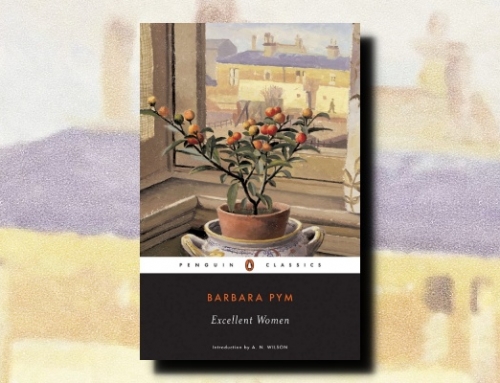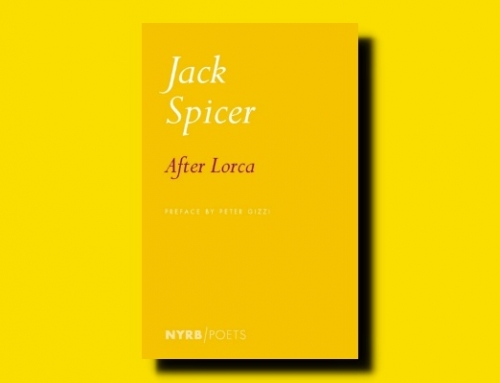Hot Milk by Deborah Levy (2016) Bloomsbury (2016) 224 pp
I am anti the big plots.
—
Anthropologists have to veer off track, otherwise we would never rearrange our own belief systems. There would be no-one to throw water at our smokescreens. No one to tell us that our reality is incompatible with other realities or to understand the significance of the plan of a village and its dwelling – its relationship to life and death, or why the women live on the periphery of the village.
Full disclosure: I love Deborah Levy. I would read her rapidly-composed, typo-ridden emails just for the hell of it. Considering her continuing fascination with semiotics and nuts-and-bolts culture, her laundry lists (or at least the margin notes) might well be worth a read. She’s a brilliant writer with a very particular style — “punk boffin”? — that feels edgy and about to unravel. It’s a clever, androgynous, vacillating take that makes exhaustive use of a formidable repertoire of anecdotal riffs and eclectic reference points to closely interpret the interactions of her players. She nearly always pulls it off. And, in doing so, she maps new ground with each piece of work.

Hot Milk is more of the same kind of wryly esoteric, occasionally Delphic, carefully irreverent stuff we saw in Swimming Home. Levy’s theatrical background is evident; much of the dialogue here combines a subtly screened argumentativeness with a winning sense of imminent anarchy. All conversations feel emptied of anything not comically exigent or subtly revelatory, and every exchange in the book either further unpeels a character or moves things further towards a point of barbed resolution. There is always a feeling that any real transformation will require a hefty emotional or physical fee, not merely the hopeful 25,000 Euro paid to a discredited quack for the solution to a long-running leg mystery.
That mystery is apparently the central focus of the novel but serves, for me at least, as little more than a MacGuffin. The plot revolves around half-Greek half-English Sofia Papastergiadis and her mother, Rose, who has re-mortgaged her house in order to find a cure for her various ailments, particularly her legs, partially her daughter, totally herself. Almeria is where unlikely savior Dr. Gomez practices his dubious art. Gomez is eccentric and unconventional, a fine comic creation who has been tasked, despite having shaky-at-best credentials, with providing a cure. He dances unconvincingly around the subject, and dangerously prescribes an abstinence from medication, as well as confronting both Rose and Sofia with impertinent and apparently irrelevant queries (when he isn’t cooing over his pregnant cat).
All the more interesting plot stuff, during which Hot Milk works well as a rollicking dramedy, plays out between Sofia and her other, more recent acquaintances as she explores the town whilst waiting on her mother’s test results and, hopefully, a final diagnoses (which we soon understand might mean very little: Rose is selective regarding her inability to walk or feel anything in her “numb” feet). Ingrid, a local sometime seamstress with whom she helplessly engages in an ambivalent affair; Matthew, Ingrid’s man-child, hammock-bound, Banksy-lite lover; Julieta, the daughter of the disreputable Gomez, who’s amid an uncertain dalliance with Matthew; Christos, Sofia’s estranged father who she visits after many years without contact (and who is still as intractably emotionally distant and selfish as ever) and Alexandra, Sofia’s new stepmother who Sofia cannot fathom, least of all due to her apparent contentment stuck in an apartment all day with a new baby, Sofia’s new half-sister Evangeline, who Christos clearly worships, as he clearly did not Sofia.
The beautifully drawn, well-arranged, and skilfully-dovetailed cast provide plenty of entertainment. But the more powerful stuff is wrought out of Sofia’s tortured ruminations when turning inward, on her “shattered constellations,” her appalled refusal to be anything expected, least of all any kind of woman her mother might approve of, and on the question of two parents, one of whom has always done things “to his advantage” while the other, her mother, has always done the opposite, and is now circuitously resentful of a life spent protecting and providing for a daughter who has temporarily abandoned her PhD (although is constantly accruing plenty of choice anthropological material) and is now coasting, using her mother’s ailments as an excuse to continue an extended hiatus. Although corroded and troubled, the unbreakable, if tetchy, bond between the two central women is the nub of matters.
I walked into the kitchen and on the table was the fake ancient Greek vase with the frieze of female slaves carrying jugs of water on their heads. I grabbed it and threw it on the floor. As it crashed and shattered, the venom from the medusa stings made me feel like I was floating in the most peculiar way.
When I looked up, my mother was standing – she was actually standing – in the kitchen among the shards of fake ancient Greece. She was tall. A cardigan was lightly draped over her shoulders. She had worked all her life and she had a driving licence, but she would have been neither a citizen nor a foreigner in ancient Greece. She would have had no rights in these ruins that were once an whole civilization which saw her as a vessel to impregnate. I was the daughter who had thrown the vessel to the floor and smashed it. My mother had tried to keep it together for a while. She taught herself how to make salty goat’s cheese for my father I remember I remember, warming the milk, adding the yogurt, stirring in the rennet, cutting the curds, doing something with muslin and brine, pickling cheese in jars. She put herbs on the lamb she roasted for him, herbs she had never heard of in Warter, Yorkshire, but when he left she could not pay the bills with herbs and cheese I remember, I do remember, she had to walk out of the kitchen and do something else, I remember she turned the oven off and put her coat on and she opened the front door and there was a wolf waiting for us on the mat but she chased it away and found a job and her lips were not puckered, her eyelashes were not curled when she sat in the library day after day indexing books, but her hair was always perfect and it was held up with one pin.
Levy invests every act with reverberative significance, sifting and weighing every moment for enduring, insuperable fragments, and can collapse the entirety of someone’s life into a glance on a beach. She is one of the best writers I can think of at making all history feel like a rummage-bag of novelistic weaponry (Ali Smith is similarly gifted at plucking something from the cultural past to better delineate the present). She makes epistemology and ontology dance to her importunate tune, which you can’t quite hum and which certainly isn’t an earworm, but which successfully commands your attention (she’s a loud, lapel-tugging writer, constantly recalibrating the scales of her tone with pointed silliness) and then toys with it. She’ll throw in repeated references to Medusa (Sophie at one point emerging from the sea with hair like a coiled nest of snakes, at another wearing a top bearing the silk-stitched (by Ingrid) tribute “beheaded”) but have the payoff someone hopping on one foot and clutching the other, which has been stung by a jellyfish (which are, in Almeria, apparently referred to as “medusas,” quite a few of which attack Sofia within these pages). So we have the conflation of one woman’s search for her identity with a figure of enormous symbolic significance deflated with a painful moment of spiteful comedy. Such comic pathos is a regular feature of Hot Milk, one of its strengths is your never quite being sure whose sympathy you should be investing in.
Here’s a typical Levy digression: everything seeded with something much bigger and multi-dimensional. Like Angela Carter and Jeanette Winterson, Levy ransacks moments other writers might throw away or ignore for “truth.” Levy’s cultural anthropologist regularly widens her lens to place events in a larger semiotic, mythological, metaphysical context.
I do have work to do. I am studying Ingrid Bauer’s bow and arrow. It is magnifying in my mind until it becomes a weapon that can wound its prey. The bow is shaped like lips. The arrow’s tip is sharp. Why am I a monster to Ingrid? She thinks of me as some sort of creature. I am her creature. The tip of the arrow is aimed at my heart.
I felt very light. Like an arrow in flight.
So everything is buried under layers, accidental, historic, deceitful and mysterious, and Levy’s rhapsodic and manically engaged eye can only tear them away. Here, everything is determinedly reinterpreted, from names to familial and gender roles.
I have no plan B to replace my father because I am not sure that I want a husband who is like a father, though I can see this is part of the mix in kinship structures. A wife can be a mother to her husband and a son can be a husband or a mother to his mother and a daughter can be a sister or a mother to her mother who can be a father and a mother to her daughter, which is probably why we are all lurking in each other’s sign. It’s my bad luck that my father never showed up for me, but I had not changed my surname to Booth, even though it was tempting to have a name that people could spell. He had given me his name and I had not given it away. I had found something to do with it. The name of my father had placed me in a bigger world of names that cannot be easily said or spelt.
Levy occasionally mistrusts her readers’ ability to piece things together and repeatedly shouts things at us, just in case we missed the first Levi-Strauss reference or the last eight mammarial similes. Her main issues — feminism, motherhood, and the maternal — the fact that names, genders and sexual conformities often stifle those tethered to them, the necessary cultivation of self-identity via others, the female-indulged (conscious or not) uselessness of most men, the implicit duplicities among everyone really close, and the emancipating honesties among those unfamiliar, are occasionally a little overplayed, and her eagerness to graft on stuff about the Greek economic collapse and wandering refugees clangs a little. But Hot Milk is nonetheless both a hugely successful and convincingly chaotic comedy of despair, full of perfectly deployed fury and withering dialogue, and an eloquent celebration of a very singular type of sisterhood (even Levy’s infrequently likeable men are basically cads, idiots or both). Demands a place on the shortlist and will surely get one.








Leave a Reply